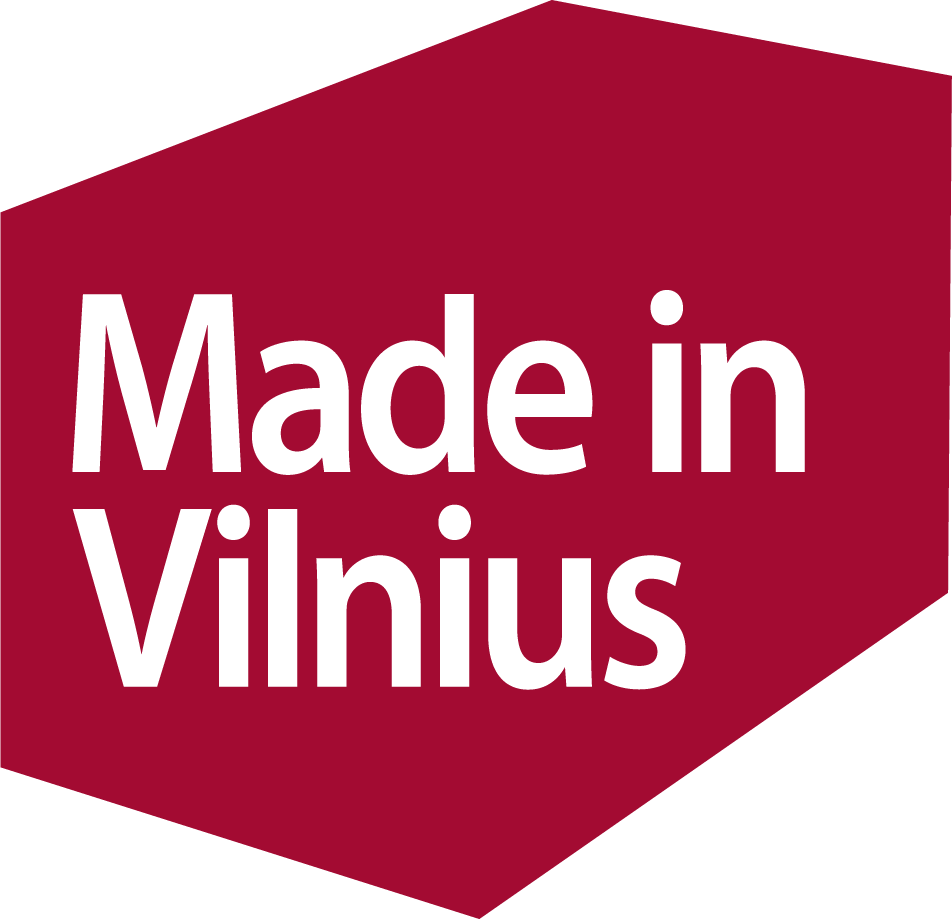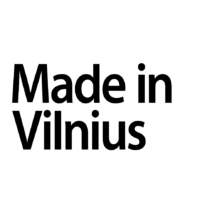"Students often think that clinical work is the only path after graduating from medical genetics studies. However, there are other career paths related to human genetics. For example, one can choose academic work as an alternative," he says Vilnius University Faculty of Medicine scientist dr. Alina Urnikytė. According to her, in order to become a good specialist, it is important to choose an area that you like the most and stick to it purposefully.
You are the first medical genetics degree program Vilnius University student What motivated you then to decide on such an adventure - to become the only student of the study program being conducted for the first time?
This was already decided by fate. I studied a Bachelor of Biotechnology in Spain at the University of Vico in Catalonia. I decided that I would return to my homeland after finishing my studies, and I started looking for a place to get a job. This is how I discovered the Department of Human and Medical Genetics at the Faculty of Medicine, which at that time was headed by academician prof. Vaidutis Kučinskas. He offered to meet to talk. Therefore, as soon as I received my diploma in Spain, I packed my bags and returned to Lithuania. I went to the interview and was hired the same day.
I had only finished my bachelor's studies, little by little I started to look for where I could continue my studies. I am considering studying a specialty related to bioengineering, however, academician prof. After V. Kučinskas suggested that I consider enrolling in the newly created master's program in medical genetics, I finally chose it. That year, I was really the first and only student to choose these studies.
And how were medical genetics studies organized? Were there regular lectures or did you study individually?
Lectures were combined with lectures of students or residents of other master's study programs. For example, the first semester was devoted to the subjects of laboratory diagnostics taught by academician prof. Aušrelė Kučinskienė. Since I had never had anything to do with medicine before, studying was extremely difficult. Later, in the second semester, it was much easier to study chemistry or computer science - I had acquired the strong foundations of these subjects during my undergraduate studies.
I studied alone for the first year, then I went on maternity leave. And after them, when I returned for the second year, there were already six of us studying.
How do you remember your study period? What was he like? What are the most memorable memories from your graduate studies?
I remember the years of graduate studies as complex and difficult. Medical genetics is a very time-consuming study. They were completely incompatible with work, I spent every evening leaning on books and notes. Just try not to know anything when you come to the lecture - you can be sure that you will be asked the same question in the next, or maybe even three, lectures (laughs). Since I always tried to prepare for lectures, this period was stressful.
As a rule, graduates of the medical genetics study program choose to do clinical work. Meanwhile, you turned to research.
Yes, most graduates of these studies choose medical, laboratory work that is related to patient diagnostics. However, there are also those who choose the doctoral path. However, I can't tell if they do purely scientific work or combine it with diagnostic work. I myself realized during my studies that working in the laboratory, with patients, is not my vocation. The topic of my master's thesis, which was in no way related to medical genetics, also encouraged me to turn to the path of a scientist. It was mainly because of him that I discovered that bioinformatics work was what I would enjoy doing the most.
I have received various job offers, but I realized that if I start "tossing and turning" between two jobs, in the end I will still have to devote most of my time to diagnostic work, and there will be very little left for scientific work that is dearer to my heart. I think that if you want to be a good specialist, you have to choose one area you like and work in it. Combining activities and being the same professional in them is impossible, some of the activities still suffer. That is why I chose the path of scientific work and follow it purposefully.
Tell us what area of interest you spend the most time on in your research work.
My main areas of scientific interest are the Lithuanian population, the origin of our population, analysis of new generation sequencing data. In other words, I analyze the genomic data of Lithuanians and compare them with the data of populations of other countries. I am currently running a project whose goal is to find out how the genome of us, Lithuanians, changes at the evolutionary and microevolutionary levels as the generations change.
In one of the conversations, you mentioned that "the Lithuanian nation is interesting for further research". Why?
Analyzing Lithuanian genetic data, I notice that we are exceptional and unique. Generally speaking, the Basque and Sardinian populations were considered "pure" in Europe. They have long been separate, isolated, and on that European and global scale, they stand out. It turns out that Lithuanians are also special in this regard. Studies have shown that we have a lot of western hunter-gatherer genetic heritage, some Scandinavian and the smallest part from the east.
Finally, it is interesting to ask if there is a particular professional aspiration or question that you would like to find the answer to in your career as a scientist.
The goal has actually been in the works for a long time - I would really like to write a book about Lithuanians and their origin in connection with my scientific research.
VU MF information.

